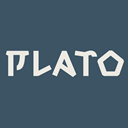Unlocking New Horizons: Top Virtual Human Toolkit Alternatives for Conversational AI
The ICT Virtual Human Toolkit has been a foundational collection of modules, tools, and libraries for researchers and developers in the realm of virtual human conversational characters. Fuelled by basic research from USC's Institute for Creative Technologies, it offers a widely accepted platform for building new technologies, emphasizing natural language interaction, nonverbal behavior, and perception. However, as the field of conversational AI rapidly evolves, many are seeking alternative solutions that offer different functionalities, open-source flexibility, or specialized features. This article explores some of the best Virtual Human Toolkit alternatives available today, helping you find the perfect fit for your next project.
Top Virtual Human Toolkit Alternatives
Whether you're looking for open-source frameworks, specialized dialogue systems, or platforms with advanced machine learning capabilities, these alternatives offer compelling options for virtual human and conversational AI development.

ParlAI
ParlAI is a Python framework designed for sharing, training, and testing dialogue models, ranging from open-domain chitchat to VQA. As a free, open-source, and self-hosted platform, it provides a flexible environment for researchers and developers, making it an excellent Virtual Human Toolkit alternative for those who prioritize a customizable and community-driven approach to conversational AI development.

DeepPavlov
DeepPavlov is an open-source conversational AI library built on TensorFlow and Keras, specifically designed for developing production-ready chatbots and complex dialogue systems. This free, self-hosted platform offers robust Artificial Intelligence and Chat Bot features, positioning it as a powerful Virtual Human Toolkit alternative for those focused on creating advanced and deployable conversational agents.

Plato Research Dialogue System
Plato Research Dialogue System is a flexible, free, open-source, and self-hosted framework designed for creating, training, and evaluating conversational AI. Its focus on Artificial Intelligence features makes it a strong Virtual Human Toolkit alternative for researchers and developers seeking a comprehensive platform to build and refine their dialogue systems with a high degree of control and customization.

ConvLab
ConvLab is an open-source, multi-domain, end-to-end dialogue system platform that enables researchers to quickly set up experiments with reusable components and compare various approaches. As a free and self-hosted solution with strong Artificial Intelligence capabilities, ConvLab serves as a valuable Virtual Human Toolkit alternative for those looking to accelerate their research in complex conversational AI scenarios.

PyDial
PyDial is an open-source, end-to-end statistical spoken dialogue system toolkit providing implementations for various dialogue system modules. Being free, open-source, and self-hosted, PyDial offers robust Artificial Intelligence features, making it a compelling Virtual Human Toolkit alternative for those specifically focused on developing and experimenting with statistical approaches to spoken dialogue systems.

Olympus
Created at Carnegie Mellon University (CMU), Olympus is a free, open-source, and self-hosted platform designed to aid in the development of conversational systems. While it doesn't list specific features, its legacy and ongoing improvements make it a solid Virtual Human Toolkit alternative for those seeking a mature and academically-backed framework for their virtual human research.

Rasa Core
Rasa Core focuses on managing dialogue with machine learning, allowing systems to improve with every interaction. As a free, open-source, web, and self-hosted platform, it offers powerful Bots and Machine Learning features. This makes Rasa Core an excellent Virtual Human Toolkit alternative for developers who want to build highly intelligent and adaptive conversational AI agents that learn from real-world usage.
The landscape of conversational AI is rich with innovative tools and frameworks. While the Virtual Human Toolkit has been a cornerstone for many, these alternatives offer diverse strengths, from deep learning capabilities to specialized dialogue management, allowing you to choose the best fit for your specific research or development needs. Explore these options to find the platform that empowers your next virtual human or conversational AI project.